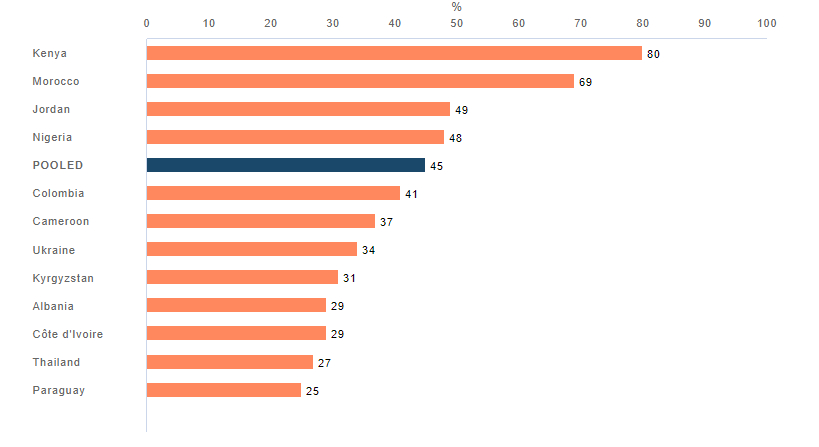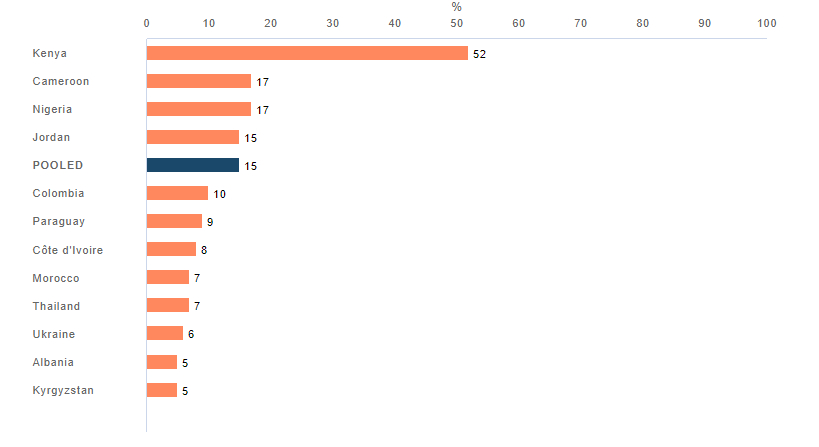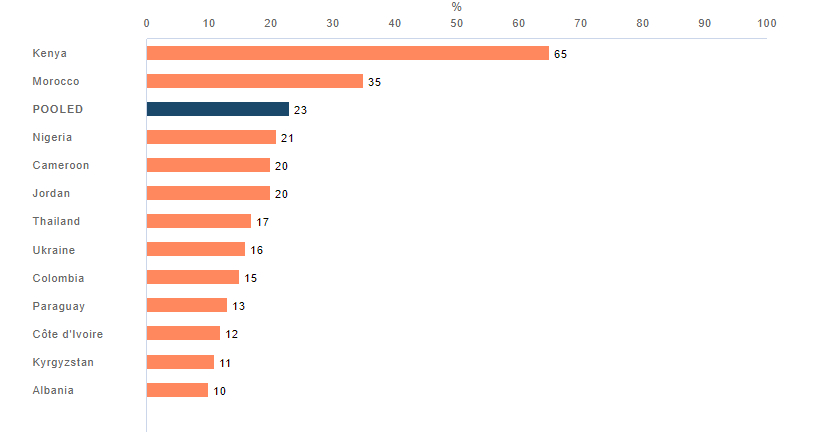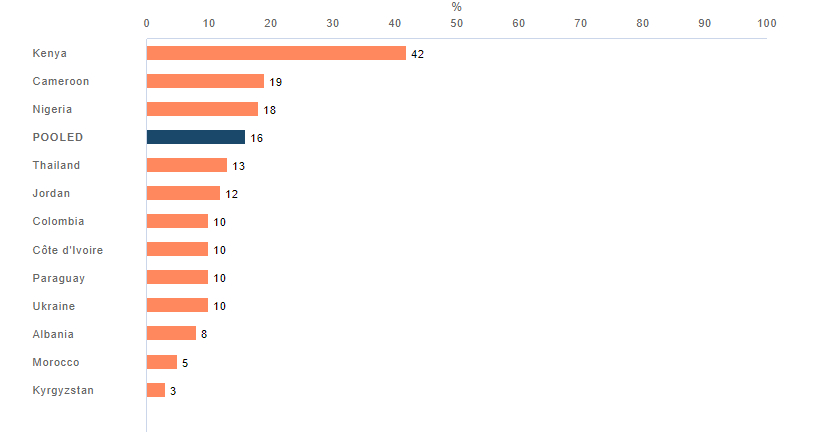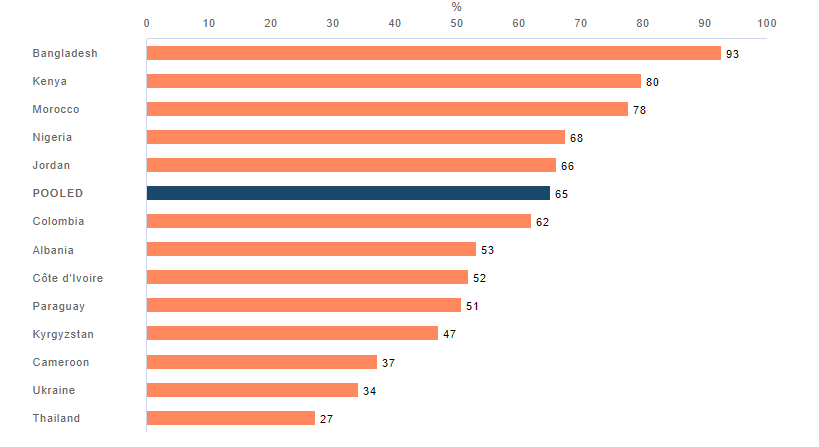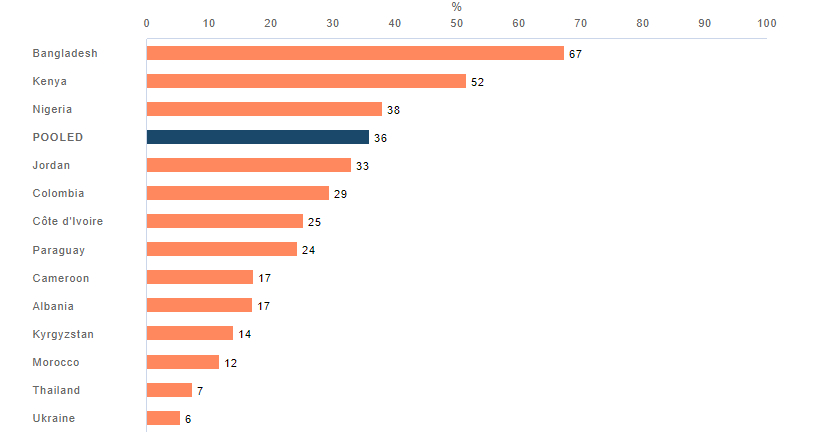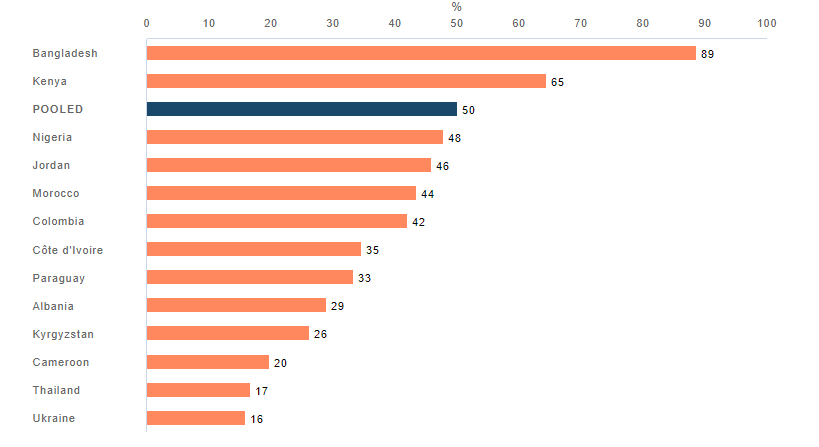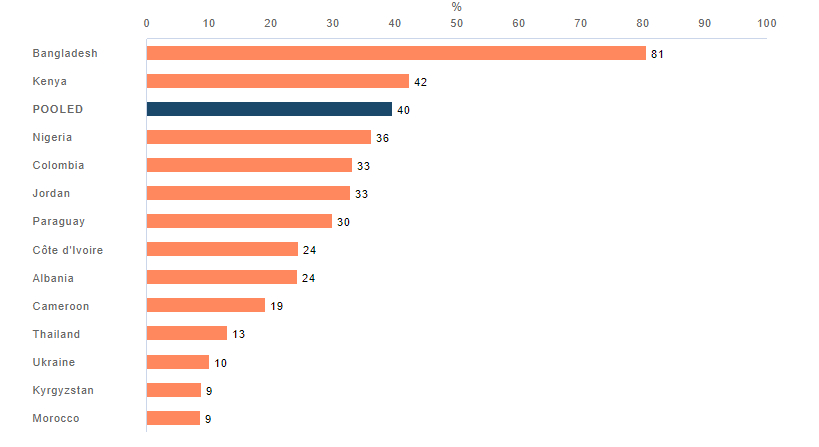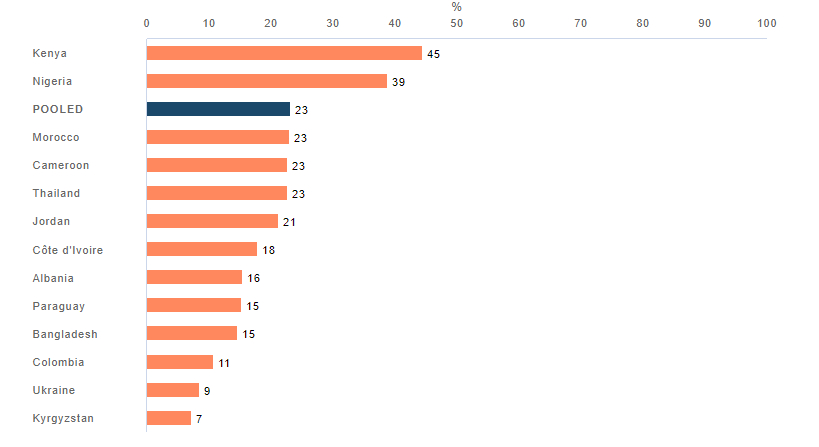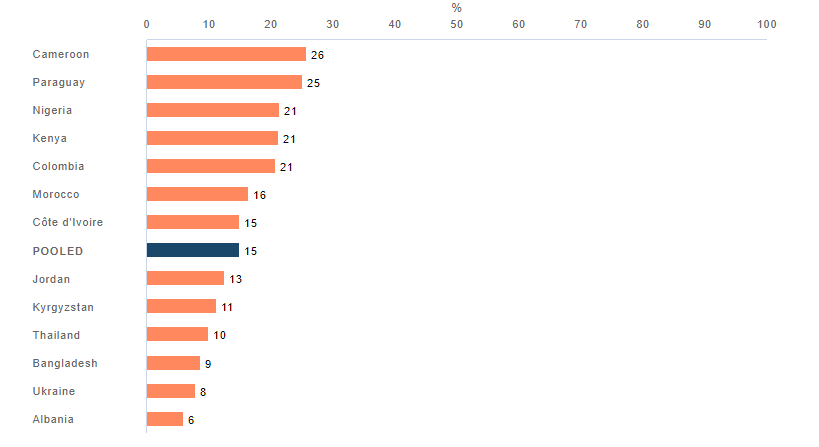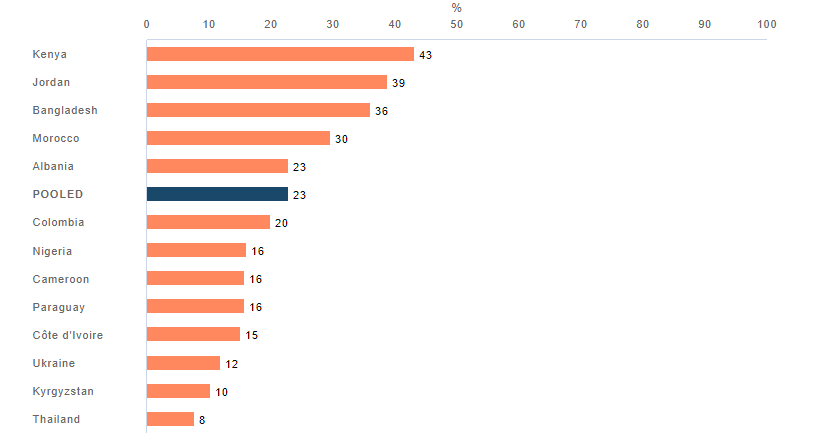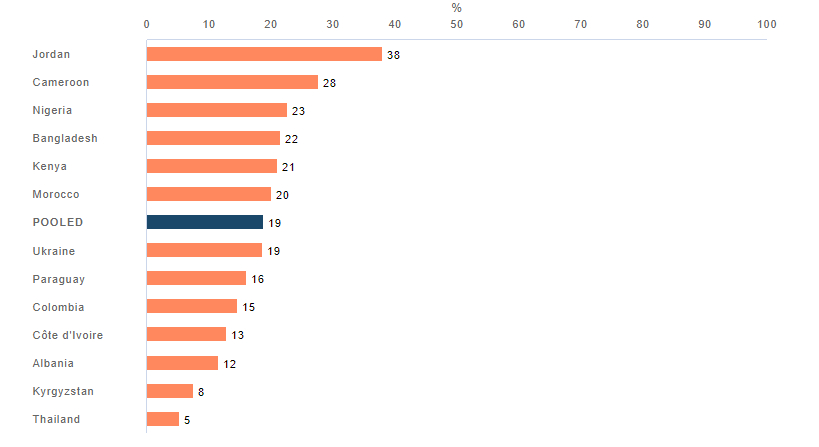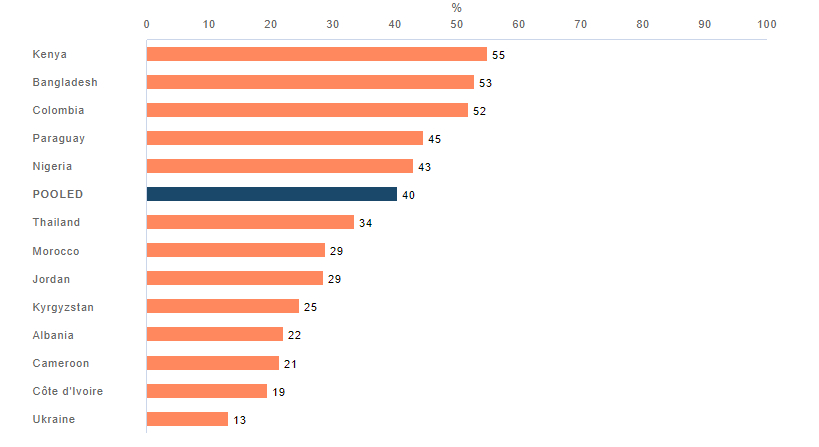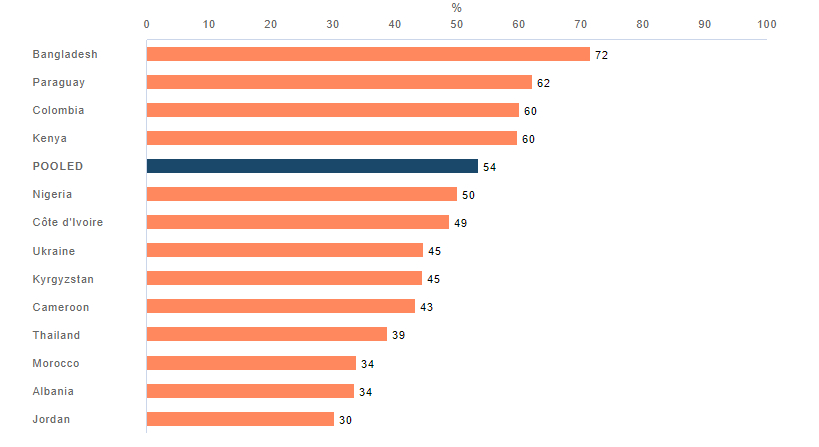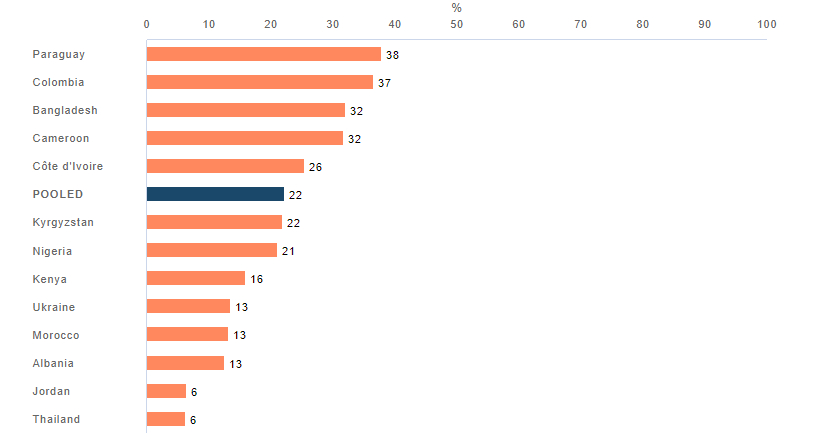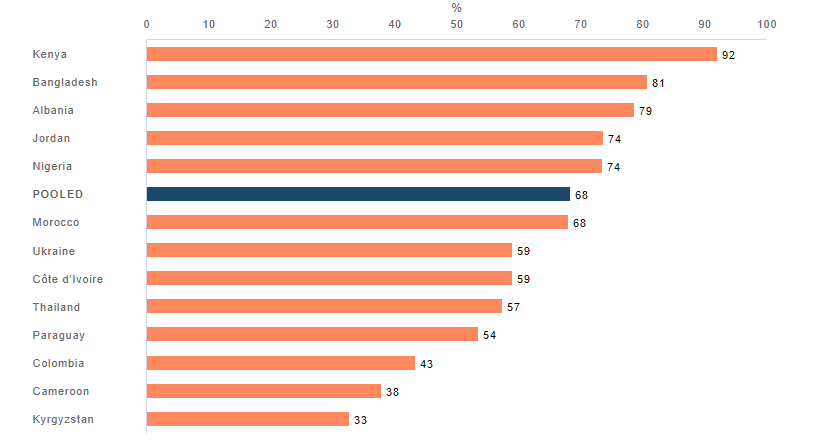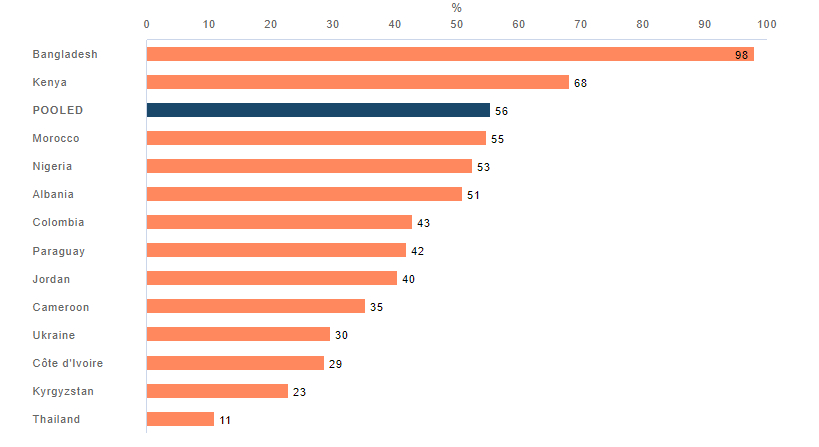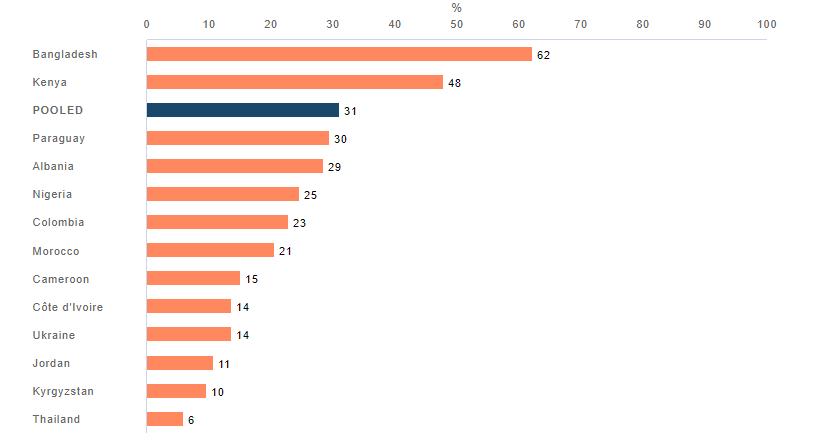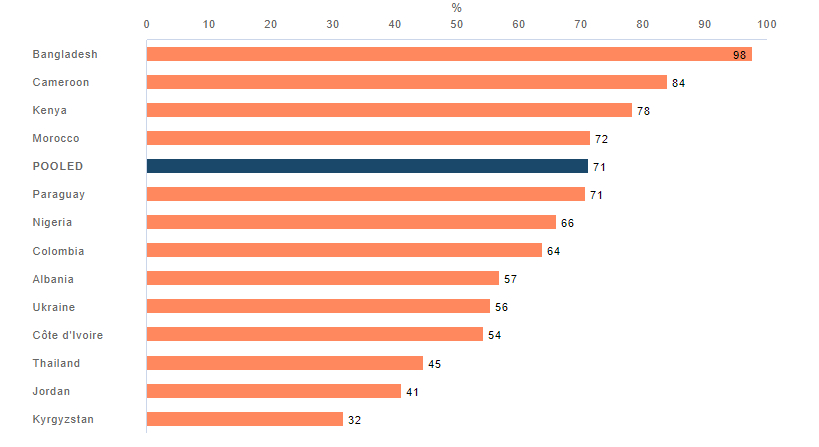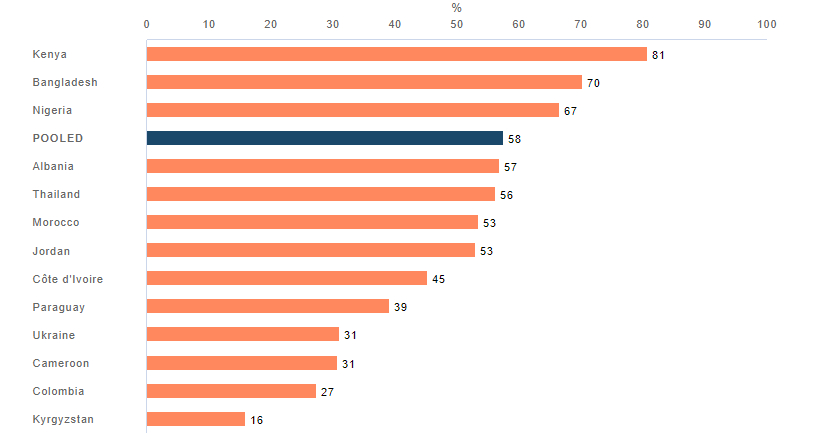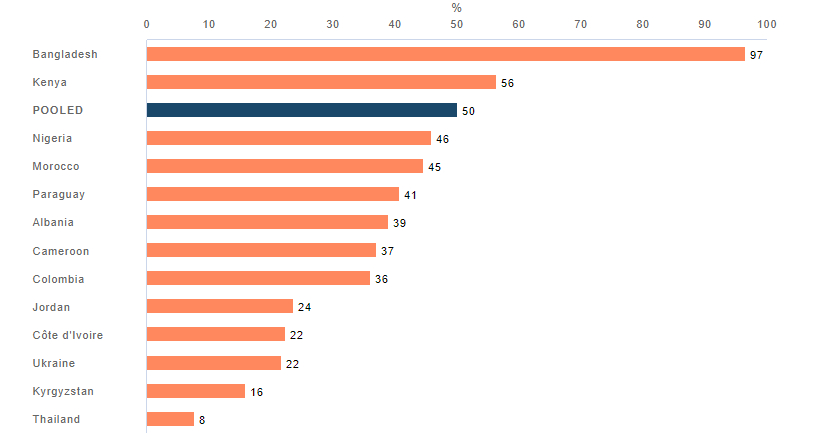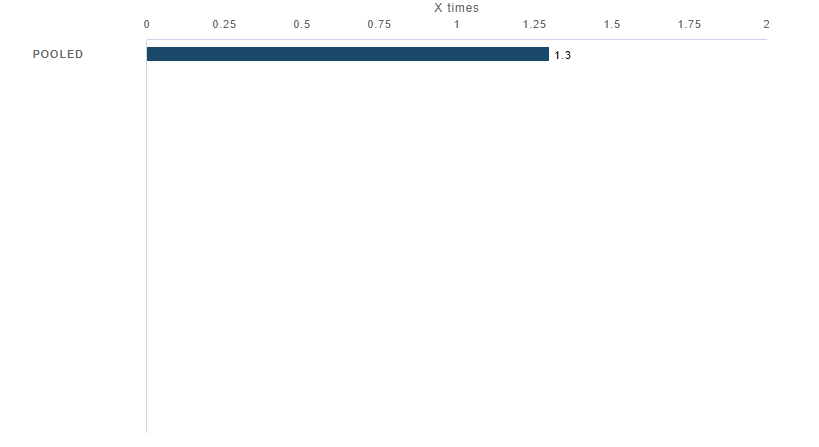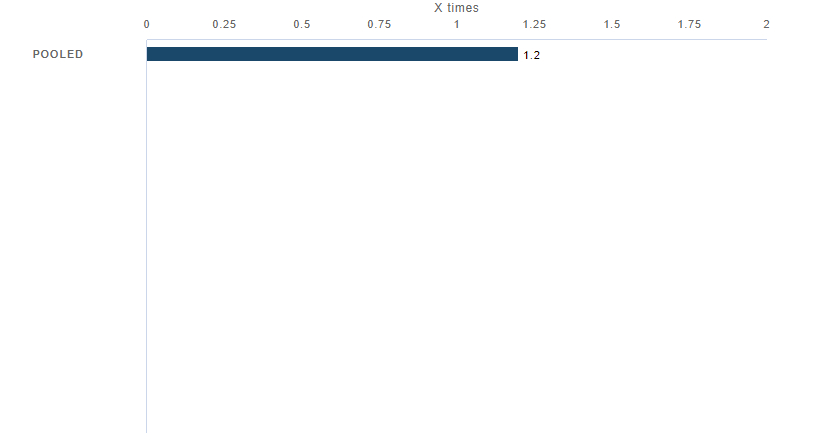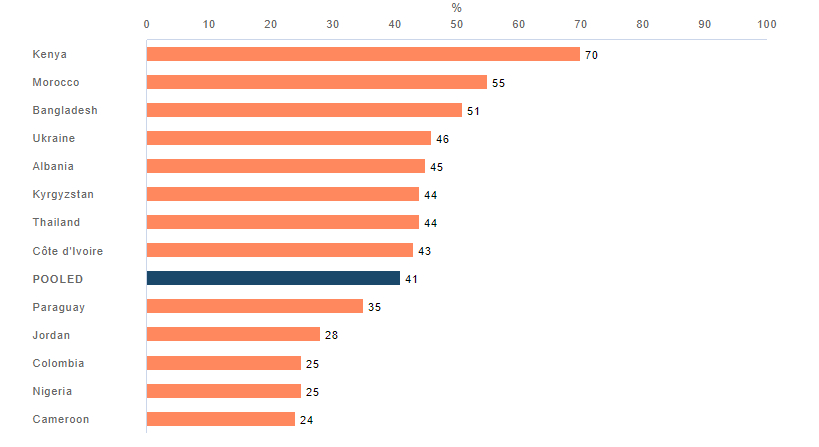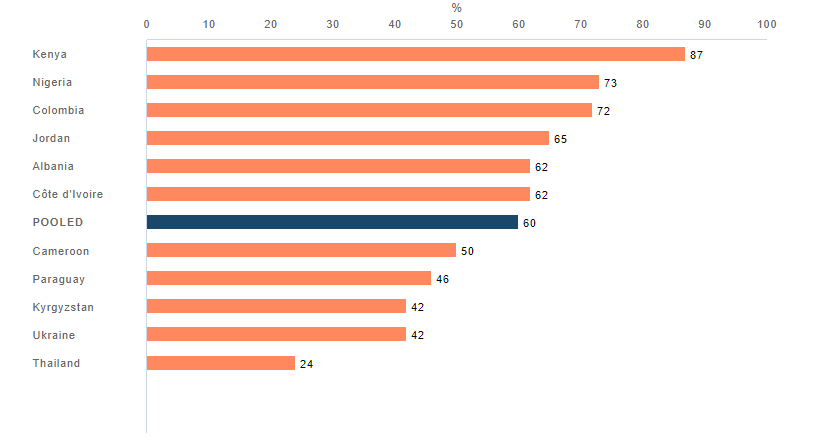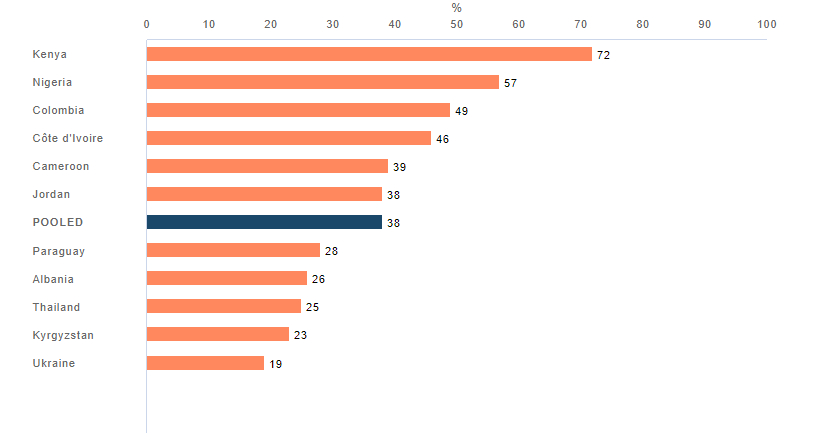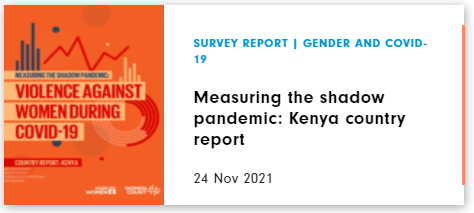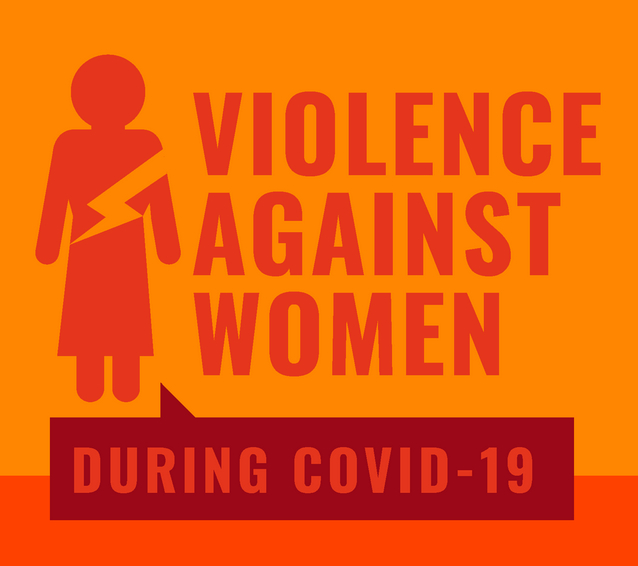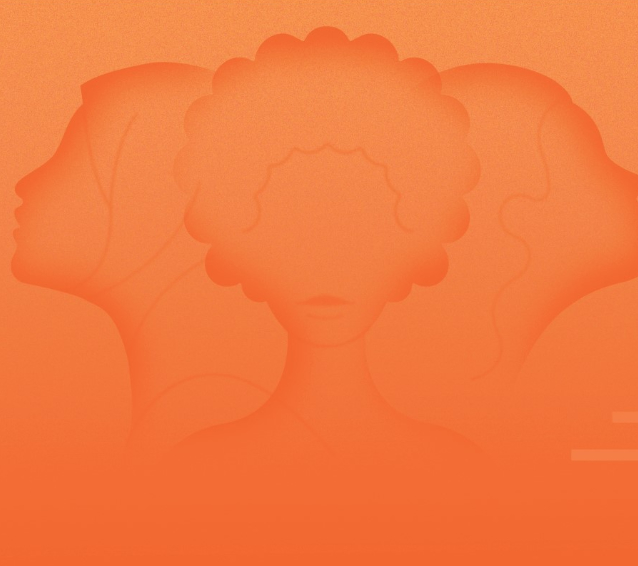Measuring the shadow pandemic: Violence against women during COVID-19
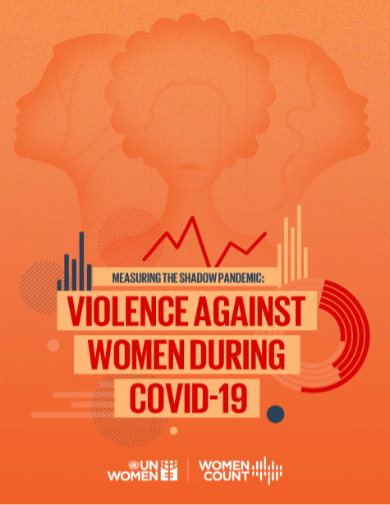
Generated by UN Women based on Rapid Gender Assessment Surveys on the impacts of COVID-19 on violence against women (VAW RGAs), with support from the Bill and Melinda Gates Foundation.
EXPLORE THE DATA | COUNTRY EPORTS | EXPLORE MORE
Emerging data from a new UN Women study confirms that the COVID-19 pandemic has resulted in a shadow pandemic of violence against women
COVID-19 has intensified violence against women
Socio-economic stressors such as employment and external stressors such as food insecurity and family relations have a significant impact, not only on experiences of violence or feelings of safety but also on women’s well-being overall.
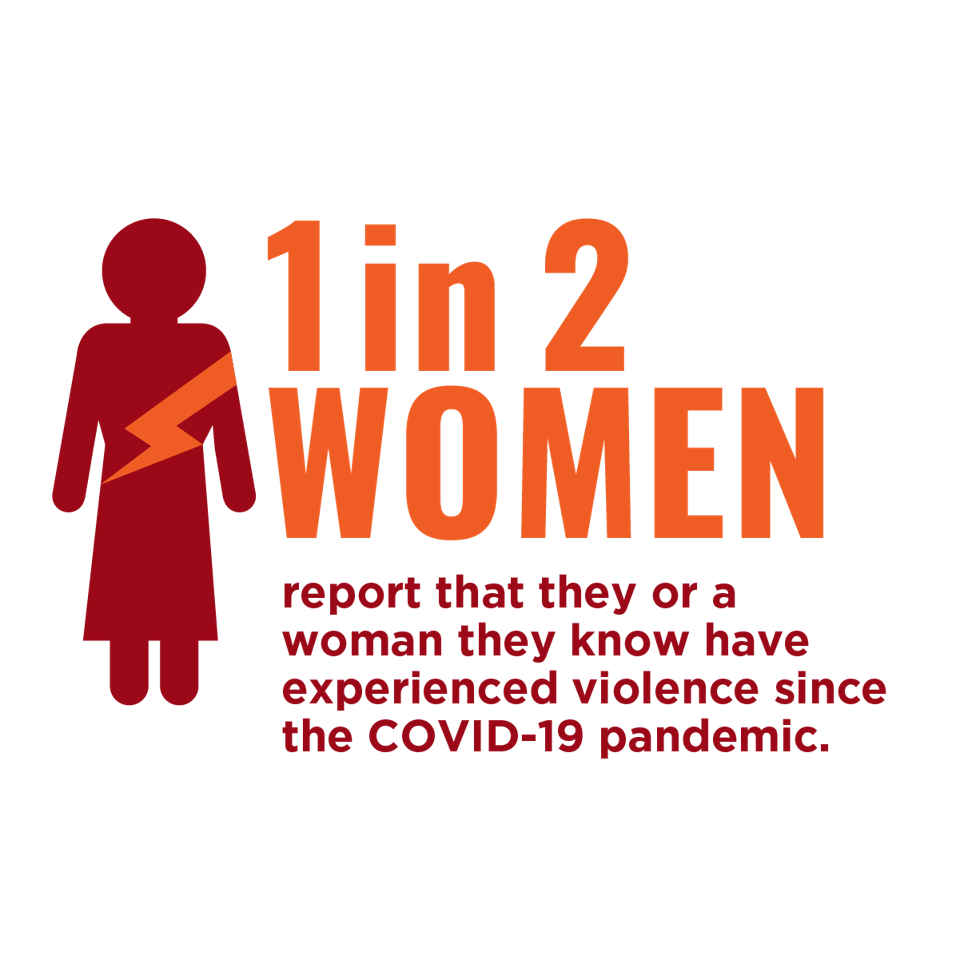
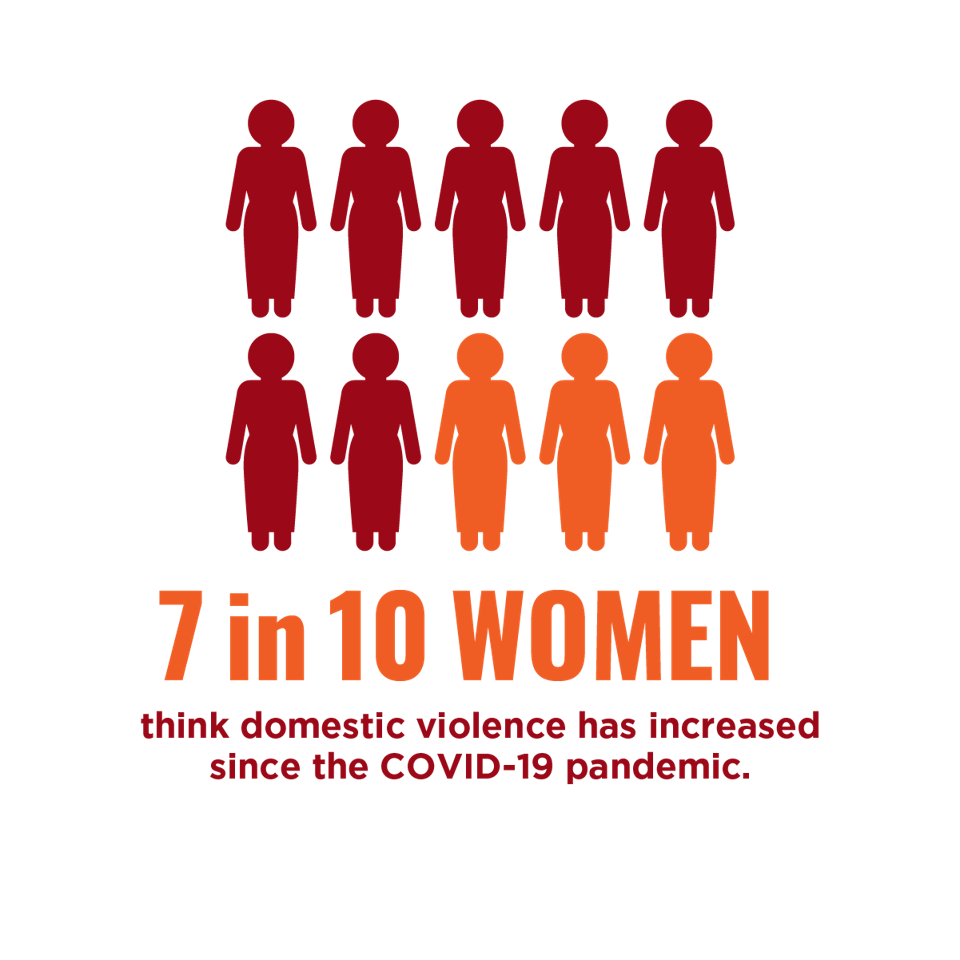
Women are feeling more unsafe at home
The findings revealed that women are feeling less safe at home as conflicts between adults at home has increased, along with the occurrence or threat of physical violence, or because other women in the household have been hurt.
Women feel less safe in public spaces
Violence against women in public spaces remains a key deterrent to women’s mobility during COVID-19. It limits their access to employment, essential services, and recreational activities. It also negatively impacts their health and well-being.
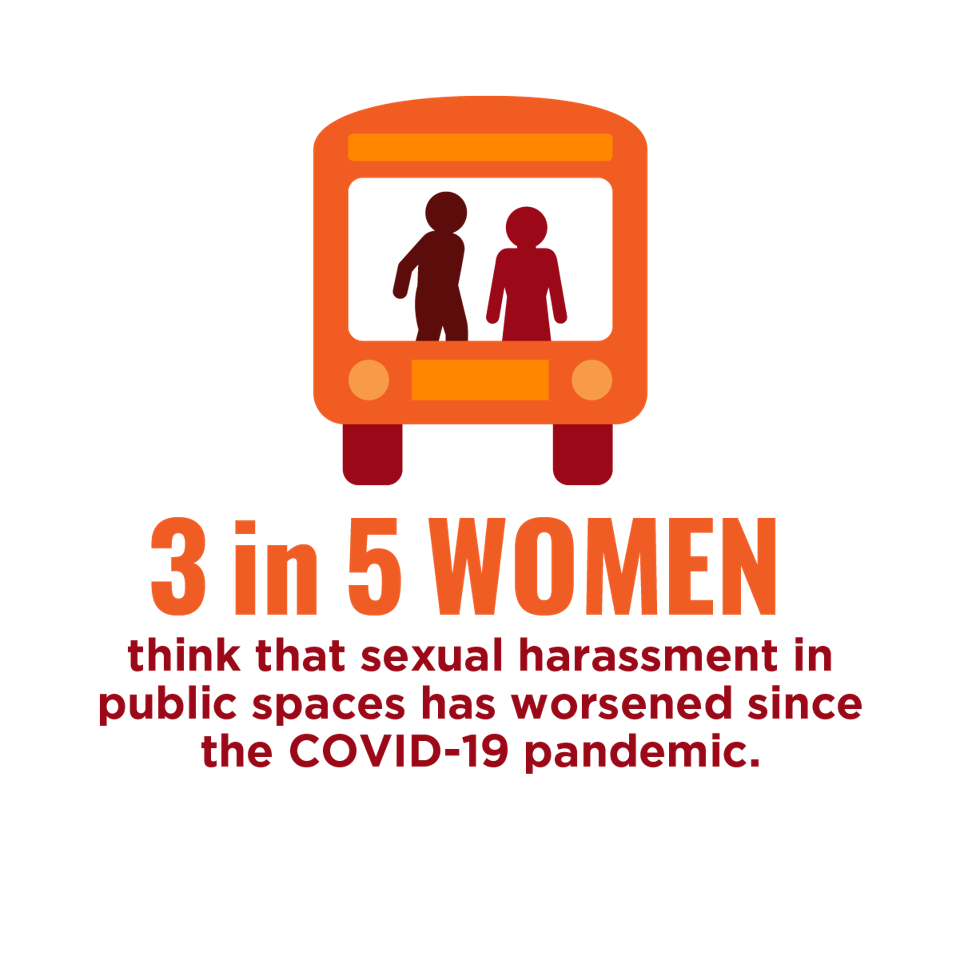
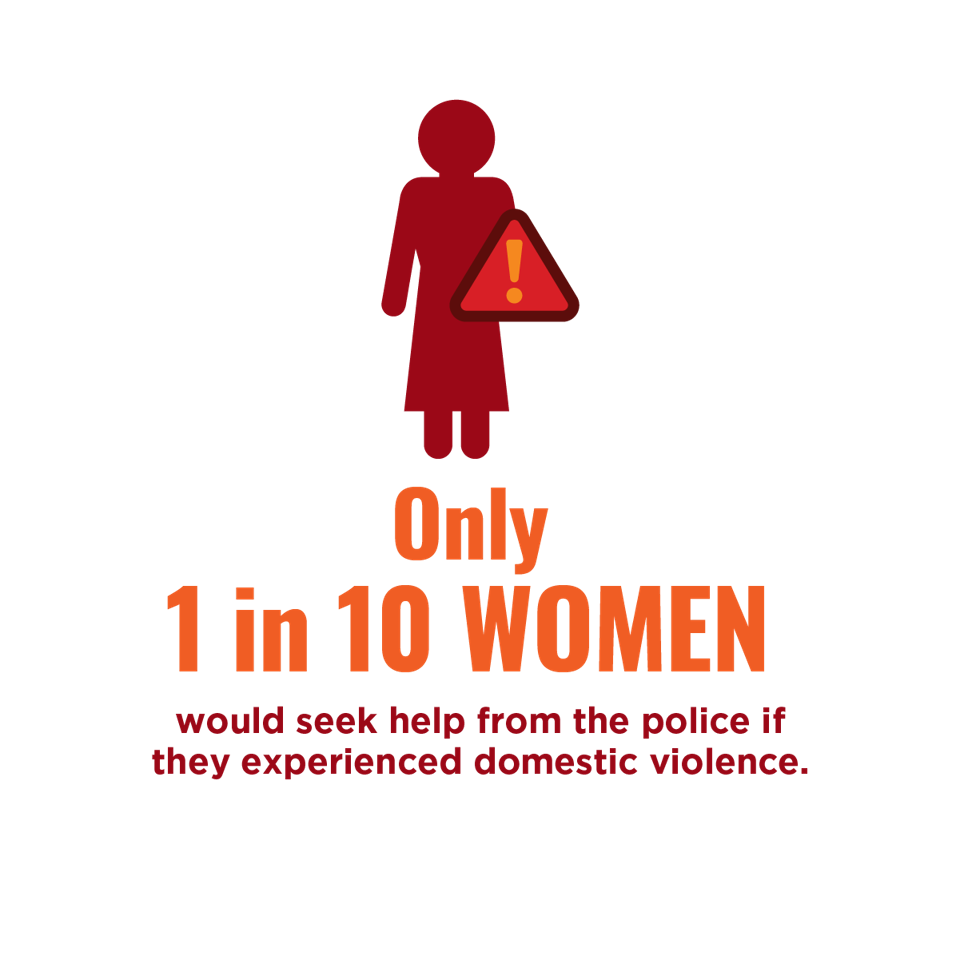
Women are reluctant to seek help outside the family
For violence that occurs within the home, most women tend to seek help from family than from the authorities, but more women seek help from police when it comes to sexual harassment in public spaces.
Violence against women during COVID-19 is linked to other negative outcomes

2 in 5 women said that COVID-19 has worsened their overall mental and emotional health.
Women who experienced or know women who experienced violence since COVID-19 were 1.3 times as likely to report increased mental and emotional stress as women who did not.
EXPLORE THE DATA
Indicator
| Violence against women during COVID-19 |
| Women's safety at home or in public during COVID-19 |
| Women's perception of VAW during COVID-19 |
| Women's mental / emotional stress and food insecurity during COVID-19 |
COUNTRY REPORTS
EXPLORE MORE
Call to Action
-
- to ensure that women’s voices, needs and rights are reflected in pandemic responses, recovery, planning and decision-making.
-
- to address violence against women and girls in COVID-19 recovery and response plans through holistic and multi-sectoral measures that are fully integrated within national and local policies.
-
- Efforts implemented since the onset of the pandemic to strengthen services must be maintained as a priority of recovery plans, and all women and girls must be aware of and able to access quality available services.
-
- that address gender norms, root causes and risk factors, especially for those that have been exacerbated by COVID-19. Prevention initiatives can include messaging to influence social norms through media, dedicated curricula in both formal and informal education systems, and economic and livelihoods support to women and households.
-
- This includes resuming national prevalence survey data collection on VAW and strengthening administrative data systems. Ensure that data capture intersectionality and marginalized groups. To this end, further investments in gender data are paramount. If regular prevalence surveys cannot be conducted, the VAW RGAs have proven to be an innovative solution.
About the Study
UN Women conducted Rapid Gender Assessments specifically focused on VAW and COVID-19 (VAW RGAs). The study is producing the first set of reliable, cross-country, and nationally representative data on topics related to VAW, women’s safety at home and in the public sphere during COVID-19 and access to resources, services, among others.
The VAW RGAs were implemented in 13 countries (from April - September 2021): Albania, Bangladesh, Cameroon, Colombia, Côte d’Ivoire, Jordan, Kenya, Kyrgyzstan, Morocco, Nigeria, Paraguay, Thailand and Ukraine.
The study was supported by national statistical offices (NSOs) or national women’s machineries and funded by the Bill and Melinda Gates Foundation. The survey research partner was Ipsos. A technical advisory group guided the process and regular consultations were done with external partners to inform the study.
Highlights
DATA BITE | ENDING VIOLENCE AGAINST WOMEN
Emerging data on violence against women confirm a shadow pandemic - 01 Jul 2021
COVID-19 and violence against women: what the data tells us - 24 Nov 2021

